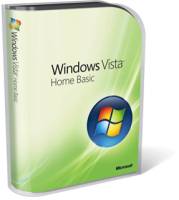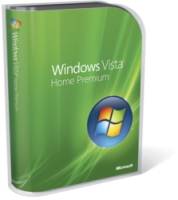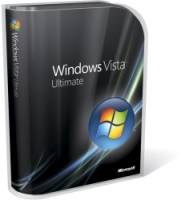- Qualcomm Launches Snapdragon 4 Gen 2 Mobile Platform
- AMD Launches Ryzen PRO 7000 Series Mobile & Desktop Platform
- Intel Launches Sleek Single-Slot Arc Pro A60 Workstation Graphics Card
- NVIDIA Announces Latest Ada Lovelace Additions: GeForce RTX 4060 Ti & RTX 4060
- Maxon Redshift With AMD Radeon GPU Rendering Support Now Available
Windows Vista Version Comparison

On Monday, we discussed whether or not Ultimate was worth your time or money. Today we will be comparing all four consumer versions of Vista together to better help you make the right decision.
Page 1 – Introduction
|
|
With Vista’s release now being less than a week away, you’ve probably by now decided whether you are going to join the fray and pick up a copy. In some cases, you could purchase it right now, since some stores jumped the gun and began selling early. If you are serious about picking up Vista and are considering the full-blown $400 version, you should first read through my article from this past Monday. It goes into depth regarding the benefits Ultimate has over Home Premium. After reading, you will either crave it even more or realize how much money you’d be wasting.
In this article, we will be taking a quick look through all four consumer versions that will be readily available next Tuesday. To help with your decision process, each version lists the slew of downsides it has, or rather what it lacks when compared to the next highest version. The last entry, Ultimate, instead has a list of pluses to show what you’d be gaining by handing over that extra wad of cash.
I will admit straight up, if money is no concern then Ultimate is going to deliver the best bang. It includes the superb computer backup tool, media center, Ultimate extras, business applications, better support for high-end hardware and additional special features. On the other end of the spectrum we have Vista Home Basic, which is designed for those who don’t care about the Aero interface or other additions such as Media Center and random content creation tools.
Spending a few minutes looking at the pros and cons listed below, you should have a good idea of what version is meant for you. The prices for both the full and upgrade versions are listed as well, so as to help you better figure out what to buy. While this list is a good way to look at all the pluses at once, for those who enjoy a more visual explanation, there are many screenshots that await you.
On the following pages you will find many 1650×1050 screenshots from each of the versions I’ve mentioned. For those interested in Media Center screenshots, there are a bunch of those on the very last page. Each of these screenshots weigh in at around 500Kb – 1MB, so bear that in mind if you are on a slower connection.

|
Home Basic is the runt of the litter, but in all honestly it’s not as bad as Microsoft wants you to believe. Yes, it’s virtually a scaled down version of Vista, but it’s not lacking anything that will not make it function as a normal machine. This is not the Starter edition we are dealing with, after all. Here is a quick run-down of what Basic does not have when compared to the Home Premium which costs $40 more.
- Home Basic vs. Home Premium
- No Aero interface, including transparency in many parts of the GUI
- No Media Center
- Five included Windows games, instead of nine
- No automatic network backup
- No relationship between PC and Xbox 360
- No advanced slideshows
- No Movie Maker / DVD Maker
- Weak Tablet PC functionality
- No SideShow Support

|
As I mentioned in my article on Monday, I believe Home Premium will be the most obvious choice when looking to pick up a copy of Vista. When you pay $40 dollars more for Premium over Home Basic, you will actually have something to show for it. Home Premium includes all of the “losses” mentioned in the previous section, but when compared to Ultimate, here’s what you will be missing.
- Home Premium vs. Ultimate
- No advanced complete system backup tool
- Small business apps, such as Fax and Scan
- No Ultimate “extras”, which could include games and special utilities
- No BitLocker hard drive encryption software
- No automatic “Shadow” copies of your documents
- No Remote Desktop
- No advanced group policy editor
- Inability to run UNIX-based applications (through SUA)
- No support for dual CPU’s (2 physical processors) or 128GB of memory

|
I don’t think it takes much of an explanation as to what audience this edition is catered to. Included here are a lot of business resources, including better security and the complete system backup tool that I’ve come to enjoy quite a bit. It does lack a lot of extra functionality that’s included with Home Premium and Ultimate though, which is a good thing in a sense. Here’s what Business lacks when compared to Home Premium and Ultimate.
- Business vs. Home Premium/Ultimate
- No games, not even Solitaire *
- No Media Center or Xbox 360 functionality
- No BitLocker hard drive encryption software
- No Ultimate “extras”, which could include games and special utilities
- Inability to install new languages for use in Windows
- No Movie Maker or DVD Maker
- No Parental Controls
- Inability to run UNIX-based applications (through SUA)
* Stephen G. writes in: “Vista Business does come with all the normal games, it just does not install them by default. You can add them via the Add/Remove Windows components part of the control panel.“

|
The only version larger than Ultimate is Enterprise, which is like the Business edition on crack. It includes various hardware based security measures to assure for good uptime. Ultimate is the version you will want to consider should you think $400 is not a lot of cash to hand over for a new OS. Below, you can see the list of what Ultimate -does- include, which Home Premium, the next competitor, does not.
- Ultimate’s Advantages
- Ultimate “extras”, which could include games and special utilities
- BitLocker hard drive encryption software
- Advanced complete system backup tool
- Windows Media Center with Xbox 360 capabilities
- Same business apps as included in the Business edition
- Automatic “Shadow” copies of your documents
- Remote Desktop
- Advanced group policy editor
- Ability to run UNIX-based applications (through SUA)
- Support for dual CPU’s or 128GB of memory
- Encrypting File System (EFS) support
- Support for resyncing files for getting work done while offline
If you have a comment you wish to make on this review, feel free to head on into our forums! There is no need to register in order to reply to such threads.
|
|
Support our efforts! With ad revenue at an all-time low for written websites, we're relying more than ever on reader support to help us continue putting so much effort into this type of content. You can support us by becoming a Patron, or by using our Amazon shopping affiliate links listed through our articles. Thanks for your support!





